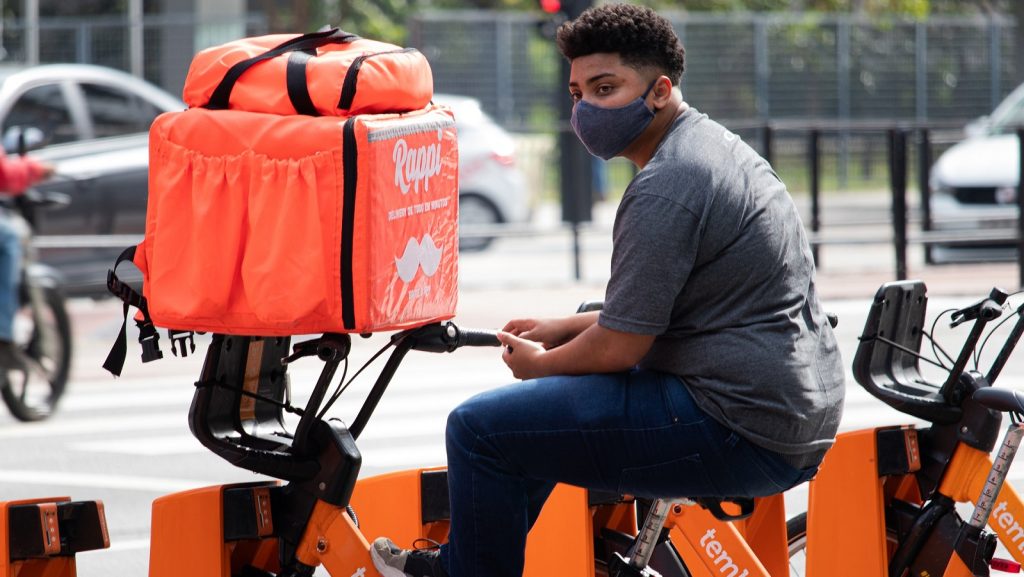Artificial Intelligence is no longer a distant promise or a Silicon Valley experiment. It’s embedded in the now. South Africans are already using generative…
Unfettered ecommerce is now allowed – here’s what startups need to know

In new regulations (downloads as a PDF), South Africa’s Trade and Industry Minister Ebrahim Patel has done an about turn on ecommerce — now allowing all online shopping, but under strict conditions.
The regulations were published in the Government Gazette today. Here’s what etailers and delivery couriers need to know.
Patel had up till now come under fire for not allowing unfettered ecommerce, restricting online sales to essential items and a small list of items that physical stores were allowed to sell.
Under the new regulations — which are effective from today — SA online stores are now allowed to sell any product other than alcohol and cigarettes under Level 4.
South African now allows all ecommerce and online shopping, but under strict conditions
Under the strict conditions include, those e-tailers selling goods online must:
- Abide by all regulations and directions in respect of hygienic workplace conditions and the potential exposure of employees to Covid-19, including the Covid-19 Occupational Health and Safety Measures in Workplaces directions issued by the Minister of Employment of Labour and published on 29 April 2019.
- Ensure that employees do not share face masks, equipment, stationery, utensils or similar items, and designated and adequately trained health and safety officers must take each employee’s temperatures using appropriate equipment or instruments at the start of a shift and every four hours after the shift commences. Records of the temperatures of each employee must be kept. Any employee whose temperature is 37.5 degrees or above should immediately be moved to an isolated observation room for a second measurement. If the second test measurement also exceeds 37.5 degrees, the employee must be returned home for self-quarantine, provided with a surgical mask and not be permitted to enter or stay on the premises.
- In order to limit the social and economic hardship caused by the pandemic on local industries, allow consumers the option to support local producers, retailers and must give prominence to those goods which are manufactured in South Africa.
- Provide for as many payment options as possible for consumers, that are based on reducing risks of transmission, and enabling poorer consumers to access delivery services.
- Ensure that when packaging goods, they provide written guidelines for customers on how to safely disinfect their goods before use.
- Ensure that they put in place collection protocols to ensure that adequate social distancing is maintained by courier or delivery service personnel when collecting goods from a warehouse or depot.
- Ensure that all goods are sanitised, in line with the guidelines published by the Department of Health, before leaving the warehouse or depot.
Those couriers delivering goods online must:
- Abide by all regulations and directions in respect of hygienic workplace conditions and the potential exposure of employees to Covid-19, including the Covid-19 Occupational Health and Safety Measures in Workplaces directions issued by the Minister of Employment of Labour and published on 29 April 2019.
- Ensure that employees do not share face masks, equipment, stationery, utensils or similar items, and designated and adequately trained health and safety officers must take each employee’s temperatures using appropriate equipment or instruments at the start of a shift and every four hours after the shift commences. Records of the temperatures of each employee must be kept. Any employee whose temperature is 37.5 degrees or above should immediately be moved to an isolated observation room for a second measurement. If the second test measurement also exceeds 37.5 degrees, the employee must be returned home for self-quarantine, provided with a surgical mask and not be permitted to enter or stay on the premises.
- Ensure that all courier and delivery personnel have their own hand sanitiser and disinfectant wipes, which must be refilled daily.
- Ensure that courier and delivery personnel wear a cloth face mask that covers the nose and mouth when delivering goods to customers.
- Ensure that courier and delivery personnel maintain at least a distance of 1.5m from other courier or delivery personnel when collecting goods for delivery; and customers when delivering goods.
- Ensure that courier and delivery service personnel do not enter the home of a customer if such customer and any other residents within the immediate vicinity are not wearing a cloth face mask or a homemade item that covers the nose and mouth.
Featured image: alefukugava via Pixabay

